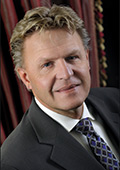Speaking to fDi from his office in Paviljoen Welgelegen, an 18th-century country estate and museum, Noord-Holland vice-governor Jaap Bond describes just what makes this northern province of the Netherlands so special.“Out of our 12 provinces, Noord-Holland is one of the most important economically,” he says. “We have a strategic location in western Europe – a huge amount of space right next to a major international hub.” Just 30 minutes from the provincial capital of Haarlem is Amsterdam Schiphol Airport, Amsterdam’s ports, and the logistics infrastructure that comes with it.
Editor's choice
This space is what enables Noord-Holland’s industries to thrive, in sectors from energy and agribusiness to state-of-the-art data centres. “It’s a region where agriculture is the founding father of everything which happens afterwards. Sixty-one percent of our ground potential is agriculture,” says Mr Bond. Noord-Holland is home to the GreenPort and Seed Valley, from where vegetable and flower seeds are exported to more than 100 countries after being bred and cultivated by a range of local and foreign companies. This expertise can be traced back through generations of Dutch family-run businesses, many of which have since joined larger multinational companies through mergers and acquisitions.
Advertisement
“What really makes the seed companies unique is the investment in innovation: between 20% and 25% of their total turnover is reinvested in R&D. That’s millions of euros every year,” says Mr Bond. This was not widely known, says the vice-governor, “because for them it was normal to have the highest standard; they are not used to talking about how good they are”.
A strong work ethic has been key to the region’s success, according to Mr Bond. “We tell the story that local clothing shops used to sell shirts with the sleeves already rolled up, always ready for work,” he says. “People here are hard working, sober and are willing to do everything for their employer. That’s been the moral for hundreds of years.”
Staying strong
Living costs here are much lower than in Amsterdam
Mr Bond believes that these factors are what has kept the region stable despite Europe’s financial turmoil. “In times of crisis, people have been able to work hard for less money because of that loyalty and because they are family companies,” he says. “They have a bit of ‘fat on the bones’ maintaining a certain level of security, which makes this part of Noord-Holland less vulnerable economically compared with other regions of the Netherlands and the rest of Europe.”
“Other internationally operating companies are now seeing that there is a best-kept secret in the northern part of our province with the necessary infrastructure and know-how and a willing government to facilitate investment,” he continues. “We have a large talent pool coming from the universities of applied science in and around Amsterdam. And you are well connected to one of the most exciting hubs in Europe – we call [our] region Amsterdam Next because it is so close to Amsterdam. We have top-quality land, air and water infrastructure, the last of which we have been investing in for more than 200 years. And our digital infrastructure makes the location even more attractive – Noord-Holland is home to AMS-IX, one of the biggest internet exchanges in the world. Our government now plans to invest more heavily in digital infrastructure than ever before.”
Advertisement
And that’s not all. “Housing and living costs here are much lower than in Amsterdam,” says the vice-governor. “You get more space for your money and there are excellent schools. It is a beautiful place not just to work, but to live.”
